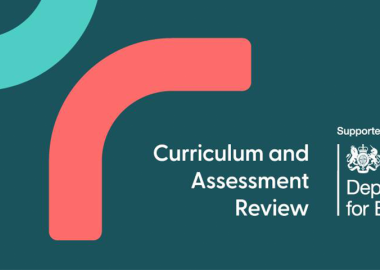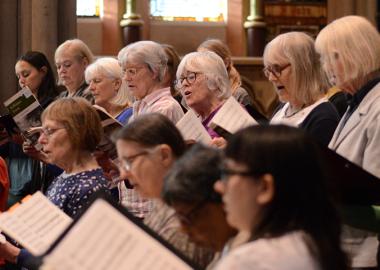You’ve probably had your fill of campaigning already, but let me enthuse – or alarm – you by briefly looking at the parties’ manifestos from the perspective of leisure-time music groups.
The Conservative party has re-iterated it intends to ‘continue [its] strong support for the arts, and ensure more of that support is based outside London’, alongside re-affirming their commitment to greater devolvement of responsibility away from the centre in general. They are proposing a new cultural development fund to use cultural investment to turn around communities.
They are planning to retain the creative industries tax credits (including Orchestra Tax Relief which Making Music has recently been championing to members), as do the Liberal Democrats.
The Conservatives remain firmly committed to the Ebacc which, as the Bacc For the Future campaign has been highlighting, already means fewer schools offering, and fewer young people accessing, creative subjects in schools.
The Conservatives do not address issues around immigration specific to the creative industries which are particularly reliant on global talent exchange, often at short notice.
This is also something I did not find in the Labour manifesto.
Like the Conservatives, Labour emphasise their intention to enhance local power, but this includes a commitment to ending Local Authority cuts, and a specific mention of libraries.
The party is championing Culture for All, pledging to review the Ebacc and to introduce a creative careers advice campaign in schools, an arts pupil premium for primary schools and a £1 billion Cultural Capital Fund particularly focussed outside London. Labour also mentions concern and support for local media and small music venues.
Music venues were also specifically referenced in the Liberal Democrat manifesto. Other policies which may be relevant to leisure-time music include a more decentralised UK (just like the other two main parties) and, like Labour, ensuring that devolving power is ‘matched by the funding to deliver on the needs of local people’.
The Liberal Democrats’ stance on Europe seeks to maintain a level of freedom of movement and mentions maintaining support for the creative industries.
They will seek to ‘protect the availability of arts and creative subjects in the curriculum and act to remove barriers to pupils studying these subjects’ – I’m taking that as pointing to a review of the EBacc.
Their plans on rural communities acknowledge the need for cultural venues and include a Rural Services Fund of capital investment. They have a whole chapter on Access to Culture & Sport and amongst other things want to protect arts funding via the National Lottery.
I found very little in the other parties’ manifestos. Both the Greens and UKIP are committed to devolving more power to local communities. UKIP is also in favour of libraries, as well as empowering community groups. Plaid Cymru’s or the Women's Equality Party’s don’t mention the arts. The Scottish National Party’s manifesto has been delayed due to the terrorist attack in Manchester this week, but their 2016 manifesto for the Scottish Parliament elections makes no mention of the arts, or arts education.
The Democratic Unionist Party, Ulster Unionist Party, Sinn Féin and the Social Democratic & Liberal Party may yet be launching their manifestos, but of the ones they used to campaign for the recent Northern Ireland Assembly elections, the Ulster Unionist Party’s references the arts, if briefly, and the Social Democratic & Liberal Party wants to maintain arts subjects in the curriculum, and supports the creative industries and public libraries.
The Creative Industries Federation, of which Making Music is a member, (‘the national membership organisation for the public arts, cultural education and creative industries’) has created a manifesto of its own which it has been pushing to all the parties and elements of which have been adapted into their manifestos (e.g. the support for small music venues and the general recognition of the importance of the creative industries).
As ever, we will seek to tell all parties and all political representatives about the benefits of leisure-time music to individuals, communities and society, before and after the election. Good luck making your choice on 8 June!










